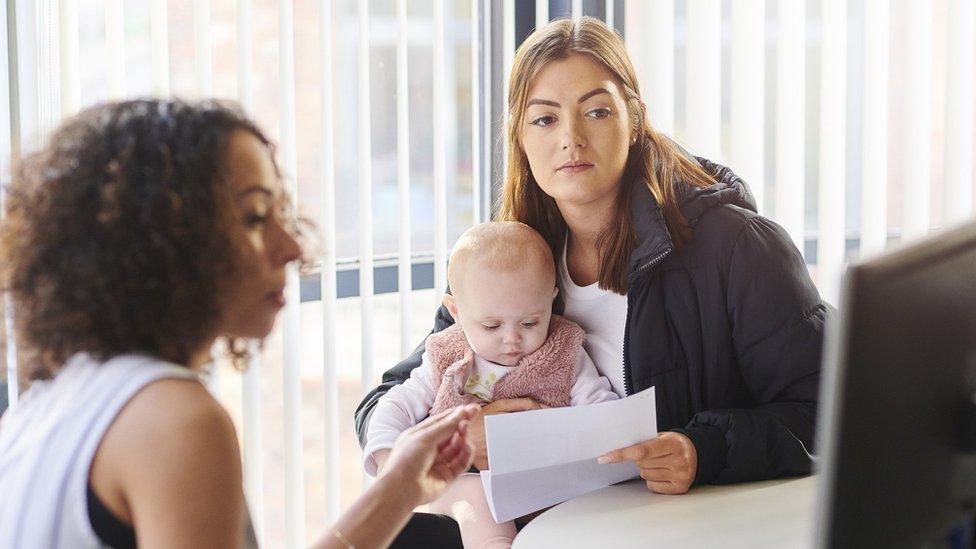Somerset family needing lifesaving op 'denied benefits'
- Published
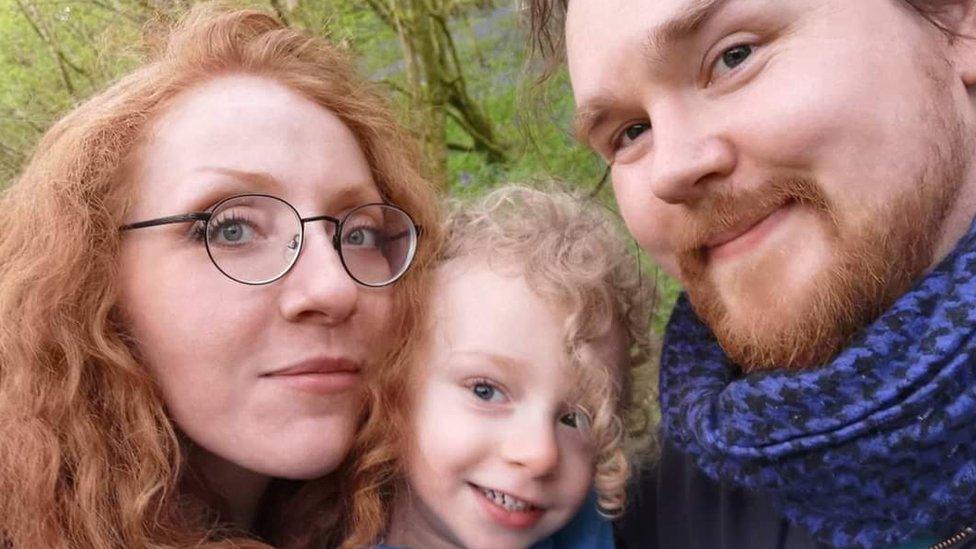
Sossa Starshine has end stage kidney failure and is waiting for a lifesaving operation
A mother waiting for a life-saving kidney transplant has asked for government help after being denied benefits.
US national Sossa Starshine lives in Somerset with her British husband Teddy Heard and five-year-old son.
Mr Heard is her primary carer, but due to visa complications he cannot claim benefits, leaving them struggling.
The Home Office said important safeguards are in place to ensure migrants receive support.
Ms Starshine, 40, who now lives in Evercreech, was diagnosed with renal insufficiency when she was aged 18. She is now reaching end-stage renal disease.
Her kidneys are shutting down, causing potentially fatal seizures, that have meant Mr Heard, 37, has been forced to stop working.
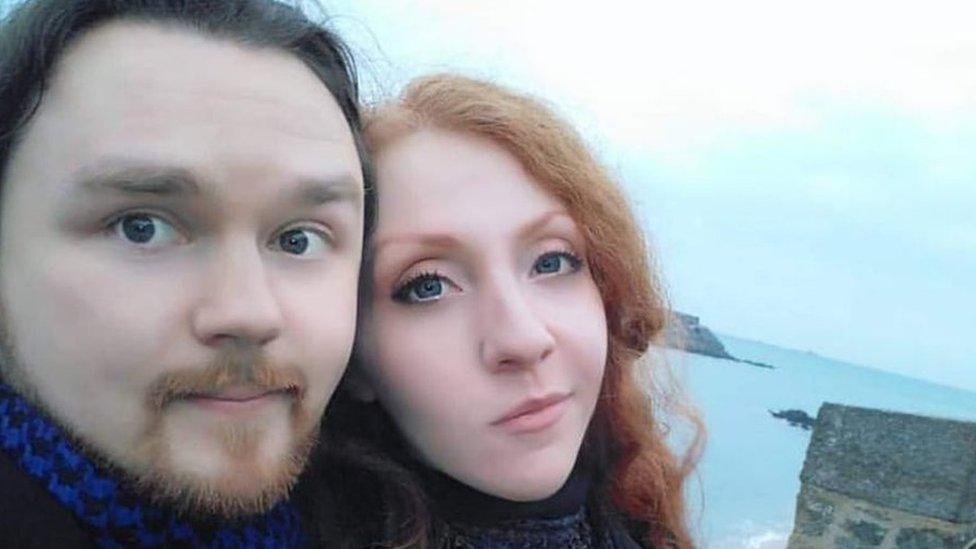
Teddy Heard said support from the local authority was "limited" and they rely on help from charities to get through
Despite giving up his job in the concert industry to care for his wife of six years, the family have been told they cannot claim either disability or carer's allowance.
Ms Starshine is now coming to the end of a five-year path for indefinite leave to remain and has applied for a visa extension.
But while she meets the requirements for Disability Living Allowance, Universal Credit and Personal Independence Payments (PIP) she is not entitled to claim any public funds because of her visa restrictions, the Home Office has said.
"Sossa's unable to claim disability, and because she is unable to claim disability allowance, I am unable to claim carer's allowance," said Mr Heard.
"We start every single month in financial hardship.
"We are below the poverty line... because we are forced to try and survive on about £350 or £380 a month, which is not enough for two adults and a child, especially when one of those adults has a lot of hospital appointments, that are absolutely required."
Mr Heard said support from the local authority was "very limited" and they rely on help from charities to survive.
'It is life and death'
Liberal democrat councillor for Mendip South, Claire Sully, has been trying to support the family through the system, and helped them set up a fundraising page.
Ms Sully said: "It is very difficult and it feels like we are in a mirror maze, because everywhere we go we seem to hit a wall and its because of the system they are in.
"It is life and death and the immigration policies don't account for humans... the legislation needs to change and we need someone to change it."
Somerset Council said they would encourage anyone who requires cost of living support to contact them to discuss their individual circumstances and needs.

Sossa and Teddy have been married for six years
Due to the seriousness of Ms Starshine's condition her husband is worried the government will tell her she can no longer stay in the country.
Up to now, Ms Starshine has been able to avoid any dialysis while waiting for a transplant, but the family said her "general drift is downwards, towards renal shutdown" and they desperately need a matching kidney.
"It is a terrifying situation," Mr Heard said. "We don't know that we are going to find a match for Sossa.
"We have been forced into this situation and they will probably say to us, 'Get out of the country' - or my wife - just my wife and they will send her away."
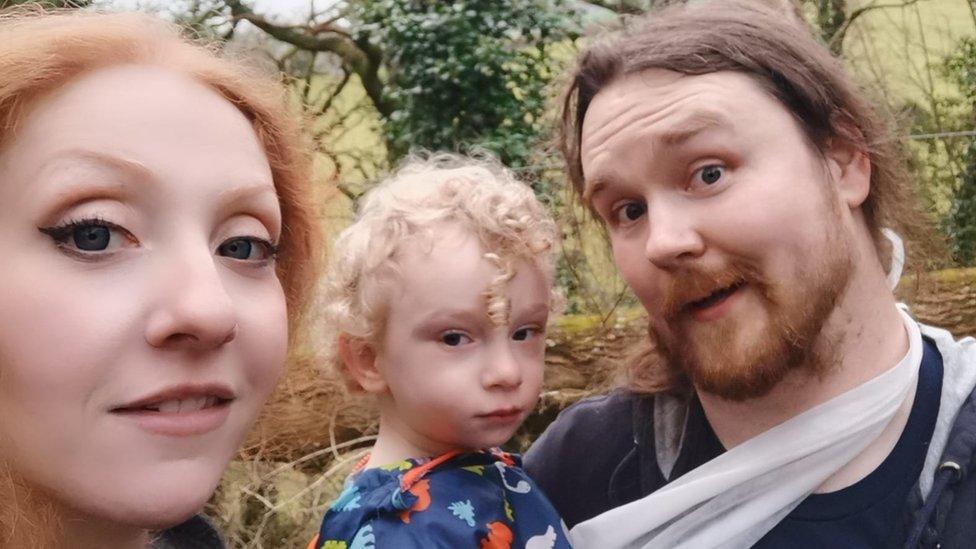
Ms Starshine said she tries to make the most of every day and every moment with her family
Ms Starshine said she was just trying to make the most of each day she has with her family.
"By 'othering me' for being born in a different country that was not in the EU, isn't in the EU, I feel like that is so profoundly unfair to my child, to my husband, to me," she said.
"I would just say, please reconsider what it is that you are doing, not just to us, but to all the others that have got filed into this weird vortex, black hole of just being in limbo."
Mr Heard said they now face a fight under right-to-respect-for-family-life legislation, which he says "is a terrifying prospect to be up against".
'Operate with compassion'
Jacqueline McKenzie, head of immigration and asylum law at Leigh Day Solicitors, said: "This is a typical case where the Home Office ought to be sitting with the family and trying to do something for them.
"The family are at risk of imminent destitution, there is considerable ill health and harm to a family.
"We have stringent rules and the rules are there, but they cannot exist in a silo, they must operate with compassion."
The Department of Work and Pensions said the matter was for the Home Office.
In a statement, the Home Office said: "The provision of No Recourse to Public Funds (NRPF) has been upheld by successive governments.
"There are strong and important safeguards in place to ensure vulnerable migrants can receive support.
"An individual can apply to have their NRPF condition lifted if they are destitute or at risk of imminent destitution, if there are reasons relating to the child welfare or where there are other exceptional financial circumstances affecting their income or expenditure."

Follow BBC West on Facebook, external, Twitter, external and Instagram, external. Send your story ideas to: bristol@bbc.co.uk , external
Related topics
- Published19 May 2023
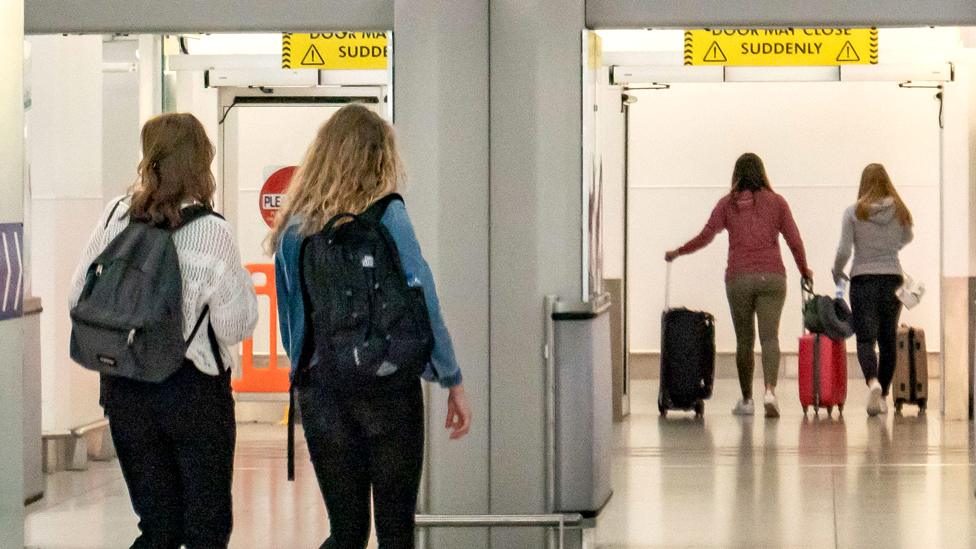
- Published19 May 2023
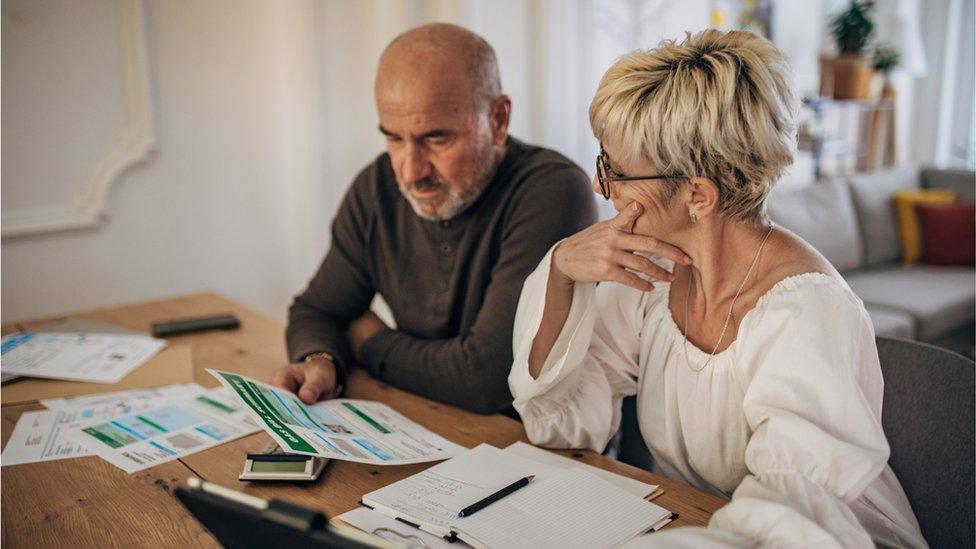
- Published22 November 2023
